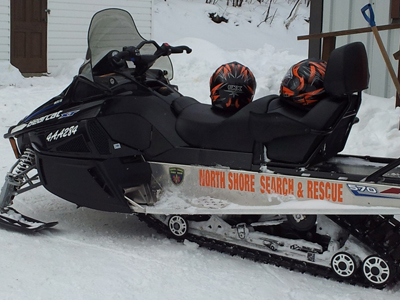Safe Outdoor Life
DON'T BECOME ANOTHER STATISTIC!
Be Prepared!
Be prepared to stay out overnight. Even a short trip can become lengthened (a survival situation) due to unexpected circumstances such as bad weather, injury, disorientation, etc. ALWAYS CARRY THE ESSENTIALS.
Learn Basic Skills
To help you survive and enjoy the great outdoors, it is important to learn basic first aid and outdoor survival skills through programs such as those offered by North Shore Search and Rescue.
We Can Help You With:
- Standard First Aid and CPR, Emergency First Responder courses, taught by certified Canadian Red Cross instructors
- Outdoor Survival Skills
- Proper Use of a Map, Compass, and GPS
Wilderness Travel Tips
Expert knowledge and guidance is important in any outdoor activity. When you want to take a hike, always be aware of your route and follow safety procedures. These tips can keep you safe and give you a memorable outdoor experience.
Always Carry the Essentials
Check that your equipment is complete and working properly prior to your departure.
Complete a Trip Plan
Leave details of your trip to a trusted individual. If you do not return as planned, a search can be initiated by alerting authorities. For your convenience, you can print your own trip plan at https://www.adventuresmart.ca/images/NSS_AdventureSmart-Brochure_En-c.pdf
Never Go Out Alone
Stay within sight (or constant contact) of one another and designate a meeting time and place in the even that you get separated.
Learn Navigational Skills
Purchase a good quality compass and a map of the area you intend to explore. Learn how to use them by contacting your local search and rescue team. Pay attention to your surroundings, landmarks, time & distance, and always look back the way you came. The trail looks different from every angle.
Do Not Panic
Remain calm and control your fears. Becoming lost is not dangerous if you are prepared. Remember the acronym S.T.O.P which means Sit, Think, Observe, and Plan.
Stay Where You Are
S.T.O.P. as soon as you become aware that you are lost or in distress. Statistically, persons who keep moving when lost go far away from trails, roads, searchers, and a happy ending. If boating, stay near your boat, even when it has capsized.
Stay Sober
Alcohol and drugs affect clear thinking, coordination, and reaction time. Remember alcohol will also accelerate the onset of hypothermia.
Use Signaling Devices
Blow a whistle, light a fire, and stay visible to assist searchers in finding you.
Three of anything (whistle blasts, fires, rock piles, or gunshots) are internationally recognized as distress signals. Remember that animals are startled by and not attracted to your signals.
Build or Seek Shelter
Protect yourself from the elements. Build shelter and collect firewood while you still have energy and light. When you think you have collected enough firewood, go back and collect five times as much to be sure you actually have enough to last overnight. At all times, ensure you are visible to ground and air searchers
Avoid the Most Common Mistake
Don't be fooled into thinking that you could never be lost. With proper preparation, you can enjoy your outdoor trip.
Become a Volunteer
Anyone can become a hero, but not everyone is prepared to become a volunteer. Are you ready to serve the community in times of emergency? Become one of our friendly volunteers! Don't worry if you feel you aren't qualified since we train members. For more details, contact North Shore Search and Rescue at (705) 869-8587.
